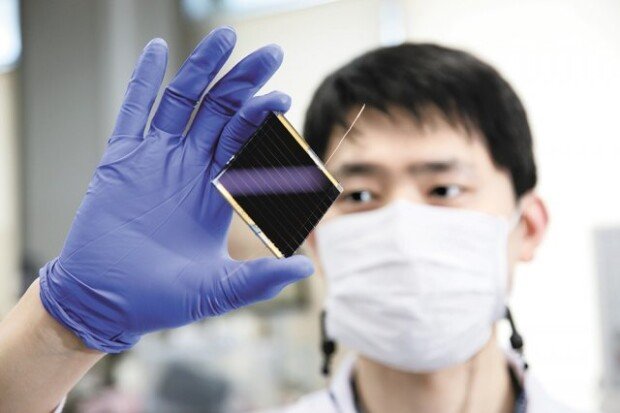Korean researchers achieve record conversion rate of Perovskite solar cells
Korean researchers achieve record conversion rate of Perovskite solar cells
Posted April. 06, 2021 07:48,
Updated April. 06, 2021 07:48

A local team of researchers in South Korea have taken a meaningful step towards the commercialization of Perovskite solar cells, the next big thing in solar cells industry.
Ulsan National Institute of Science and Technology (UNIST) announced a South Korean research team led by Kim Jin-young, an energy chemical engineering professor at UNIST, and Kim Jong-seok, a senior researcher at Korea Institute of Energy Research, has developed a perovskite solar cell whose photovoltaic conversion reaches 25.6% in collaboration with the Swiss Federal Institute of Technology Lausanne (EPFL), and the findings were published in the Nature magazine on Monday.
The conversion rate is a world record, surpassing the previous record of 25.2% set by the Korean team led by Senior Researcher Seo Jang-won of Korea Research Institute of Chemical Technology in February.
Perovskite is a material with a regular crystal structure consisting of two positive and one negative ions. Its solar cells harness the power generated when the material absorbs light and divides into positive and negative charges. Perovskite cells are gaining popularity as production cost is cheaper and the process is simpler compared to silicon solar cells. The relatively low conversion rate was one of the few shortcomings, but it is getting close to silicon cells’ conversion rate (26.6%) through repeated research.
reborn@donga.com







